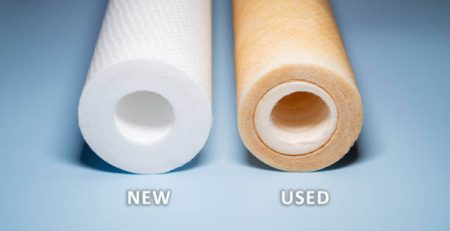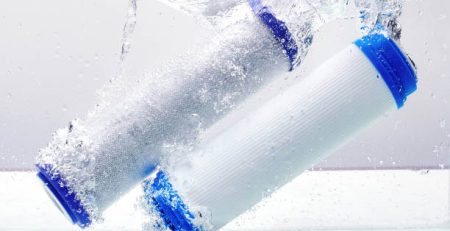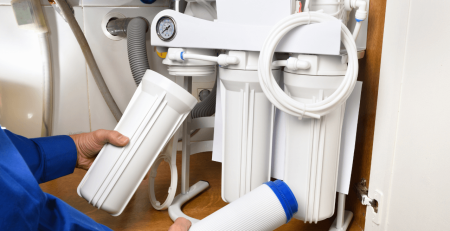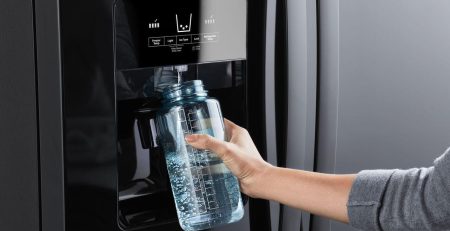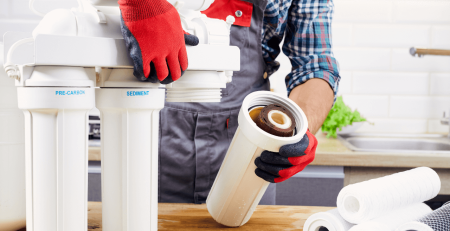Drink Plenty of Fluids to Get Relief from UTIs
It’s no secret that urinary tract infections (UTIs) can be extremely painful and uncomfortable. Unfortunately, if left untreated, UTIs can lead to more serious health issues.
Thankfully, there are some simple steps you can take to help relieve UTI symptoms and even reduce your risk of getting a UTI in the first place. One of the best ways to do this is to drink plenty of fluids. Drinking plenty of fluids helps flush out bacteria that can cause UTIs and helps prevent infection-causing bacteria from sticking to the walls of your urinary tract.
- It’s important to drink enough fluids throughout the day to ensure that your body is able to flush out bacteria before they can cause an infection.
- The best fluids to drink to help relieve UTI symptoms and prevent infection are those that are low in sugar and caffeine.
- Water is always the best choice, but other good options include unsweetened cranberry juice, herbal teas, and diluted fruit juices.
- It’s also important to avoid alcohol and caffeinated beverages, as these can irritate your bladder and make your symptoms worse.
- If you’re prone to UTIs, it’s also a good idea to drink plenty of fluids before and after sex. This can help flush out bacteria that may have been introduced by sexual activity.
- Drinking plenty of fluids is an important part of preventing and relieving UTI symptoms.
By making sure you’re drinking enough fluids throughout the day, you can help keep your urinary tract healthy and reduce your risk of getting a UTI. If you’re experiencing UTI symptoms, be sure to see your doctor right away. They can provide you with a treatment plan that’s tailored to your specific needs.
Filtered water vs unfiltered water
When it comes to drinking water, there is a lot of debate over whether filtered or unfiltered water is better. While there are benefits to both, it is important to consider the pros and cons of each type of water before making a decision.
- Unfiltered water is water that has not gone through any type of filtration system. This type of water can contain contaminants such as dirt, lead, and other chemicals. While unfiltered water is often safe to drink, it is not as clean or free of contaminants as filtered water.
- In addition, unfiltered water has a distinct taste and odor that some people may find unpleasant.
- On the other hand, filtered water is water that has gone through a filtration process to remove contaminants. This type of water is generally much cleaner and free of contaminants, making it a healthier choice than unfiltered water.
- Additionally, filtered water often has a fresher taste and odor than unfiltered water, making it more enjoyable to drink.
When it comes to choosing between filtered and unfiltered water, it ultimately comes down to personal preference. If you prefer the taste and odor of unfiltered water, then it may be the right choice for you.
However, if you want the cleanest, freshest-tasting water possible, then filtered water is the way to go. Filtered water is also the best option if you are concerned about the safety of your drinking water, as it is free of contaminants that can be harmful to your health.
No matter which type of water you choose, it is important to stay hydrated and drink plenty of water throughout the day.
How much water is needed to consume to prevent UTI:
Urinary tract infections (UTIs) can be painful and uncomfortable, and drinking enough water is one of the best ways to prevent them. But, how much water is enough to help prevent UTI symptoms and infections?
The answer depends on several factors, like your age, gender, and activity level. Generally, experts recommend that adults drink between six and eight 8-ounce glasses of water per day. That’s about 2 liters or 0.5 gallons of water.
- To make sure you’re drinking enough, you can use a water bottle or other container to measure your daily water intake.
- For those who are physically active, more water may be needed to prevent UTI symptoms and infections.
- If you’re exercising, sweating, and spending more time in a hot climate, your body will need more fluids to replace the water you’re losing.
- In addition to drinking plenty of water, there are other things you can do to prevent UTI symptoms and infections.
- For example, it’s important to practice good hygiene and to always wipe from front to back after using the restroom.
- You should also urinate after sexual activity and avoid using perfumed soaps or bubble baths.
Finally, if you’re prone to UTI symptoms and infections, you should see your doctor for further advice. They may be able to recommend medications or lifestyle changes to help reduce your risk of developing a UTI. By drinking enough water and following a few simple precautions, you can help prevent UTI symptoms and infections.
Drinking plenty of water is one of the best ways to help prevent UTIs. Aim to drink at least 2 liters (67 oz) or eight 8-oz glasses of water every day. This will help flush out bacteria that can cause UTIs. Staying hydrated also prevents your urine from becoming too concentrated, which can lead to infection. It is also recommended that you avoid drinks that are high in sugar or caffeine, as these can increase your risk for UTI.
Conclusion
Drinking plenty of water is an effective way to prevent urinary tract infections (UTIs). Staying properly hydrated helps flush bacteria out of the urinary tract and keeps urine more dilute, making it harder for bacteria to grow and cause infection. Additionally, drinking plenty of water can help reduce the number of bacteria in the urinary tract, as well as reduce the amount of time bacteria can survive in the urinary tract.
In conclusion, drinking plenty of water is an important part of preventing UTIs. It is important to note that drinking plenty of water is not the only way to prevent UTIs, and other healthy lifestyle habits such as urinating after sex and exercising regularly should also be followed in order to reduce the risk of getting a UTI. If you are experiencing symptoms of a UTI, you should contact your healthcare provider for further evaluation and treatment.

